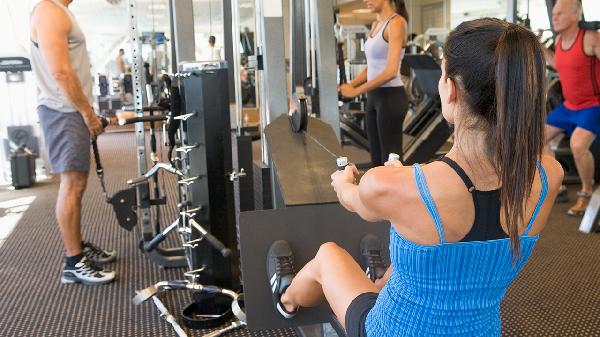If you're hitting the gym hard and wondering how much protein you actually need to pack on muscle, the answer might surprise you. It's not about chugging endless protein shakes or eating chicken breast for every meal—science has a smarter approach. The magic number isn't as sky-high as supplement companies want you to believe, but it's also not as low as some outdated fitness myths suggest. Let's break it down so you can fuel your gains without overdoing it.

Research shows that the optimal protein intake for muscle building falls between 0.7 to 1 gram of protein per pound of body weight per day. That means if you weigh 180 pounds, you'd aim for roughly 126 to 180 grams of protein daily. But here's the kicker—your body can't efficiently use massive amounts of protein in one sitting. Spreading your intake across 3-5 meals with about 20-40 grams of high-quality protein each is far more effective than slamming 80 grams in a single post-workout shake. Your muscles are like sponges—they absorb what they need and dump the rest, so timing and consistency matter just as much as the total amount.
Ever heard gym bros claim you need 2 grams of protein per pound? That's overkill for most people. Once you surpass your body's ability to use protein for muscle repair and growth (about 1 gram per pound), the excess gets converted to energy or stored as fat. Plus, excessive protein can strain your kidneys over time and leave you missing out on other crucial nutrients from carbs and fats. Unless you're an elite bodybuilder or endurance athlete, mega-dosing protein just leads to expensive pee and unnecessary digestive stress.
Not all proteins are created equal. Animal sources like chicken, eggs, Greek yogurt, and lean beef contain all nine essential amino acids your body can't make—these are called complete proteins. But plant-based lifters, don't sweat it! Combining foods like rice and beans, quinoa with veggies, or peanut butter on whole wheat gives you the same muscle-building benefits. The key is variety and pairing complementary proteins throughout the day. And while whey protein is convenient post-workout, real food should make up the majority of your intake—it comes packed with vitamins, minerals, and fiber that powders can't match.
Your ideal protein intake isn't set in stone. If you're in a calorie deficit to lose fat while preserving muscle, bumping up to 1-1.2 grams per pound helps prevent muscle breakdown. Older adults (50+) also need about 30% more protein than younger folks to combat age-related muscle loss. And if you're recovering from an injury? Crank up the protein to support tissue repair. But if you're sedentary or just doing light cardio, you can dial it back to 0.5-0.7 grams per pound—your muscles aren't under enough stress to need extra fuel for growth.
Struggling to recover between workouts? Constantly hungry? These could signal protein deficiency. On the flip side, if you're always bloated, dealing with kidney discomfort, or seeing your weight creep up despite clean eating, you might be overdoing it. The best approach is to start at 0.8 grams per pound, track your energy and progress for a few weeks, then adjust based on results—not bro science. Remember, protein is just one piece of the muscle-building puzzle. Without proper training, sleep, and overall nutrition, even perfect protein intake won't move the needle.
At the end of the day, building muscle is about consistency—both in the gym and in the kitchen. Stick to the science-backed protein range, prioritize whole foods, and listen to your body's signals. The gains will come without turning your life into an all-protein-all-the-time grind. Now go enjoy that post-workout meal (yes, carbs included) and let those muscles grow!
























